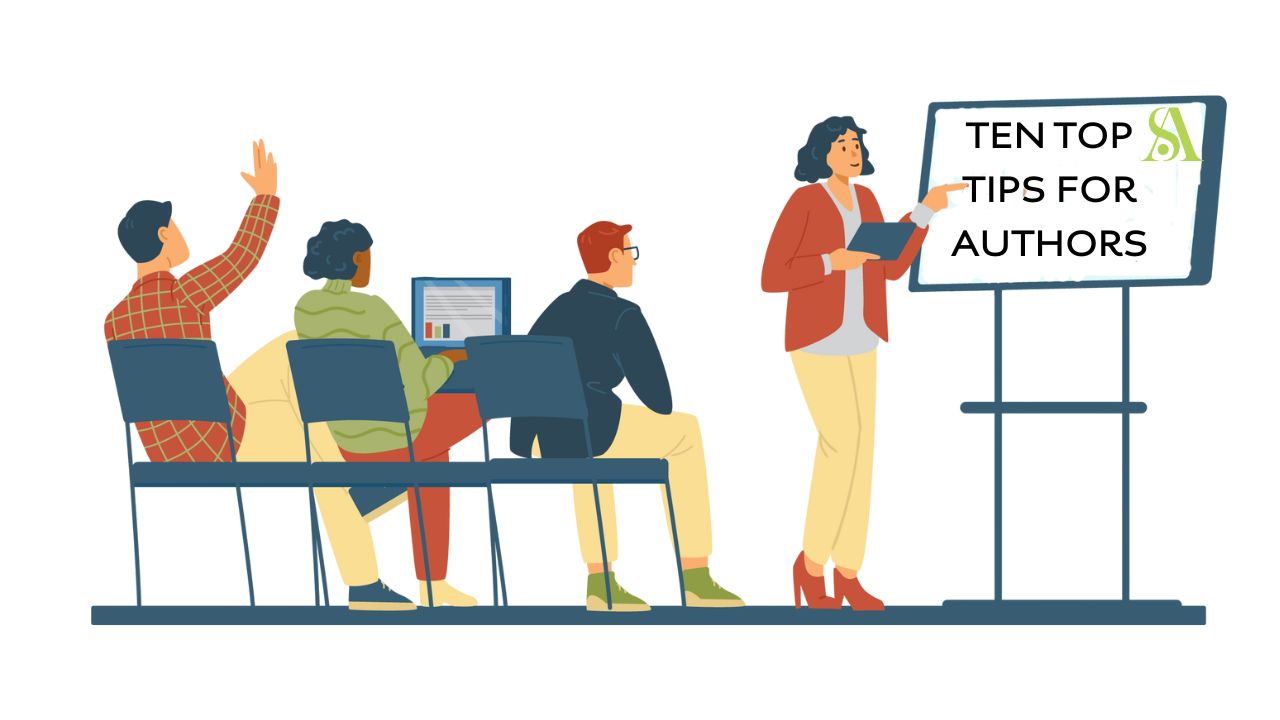First published in The Author, Spring 2023
Last year, Mslexia – the magazine for women writers – asked its readers what happens when they send their work to agents, editors, competition organisers, grant awarding bodies and others. Are they treated with courtesy or indifference? Do they receive an immediate acknowledgement and a timely decision? Or are they left waiting in vain for a reply?
Our survey was prompted by an article we’d published six months earlier, by psychologist and memoirist Vanessa Moore. The article explored how devastating rejection can be for writers – to the extent that some sit on their finished manuscripts for years, afraid to submit again, and some give up writing completely.
Moore argued that women are especially affected, and what’s true for women is likely to be true of marginalised writers of all kinds. So we decided to explore what could be done to make the experience less painful. The result was our survey of 1,685 writers (most of them women, 65% aged over 50, 28% with mental-health issues, 12% identifying as disabled and 52% from a working-class background).
At Mslexia, we like receiving submissions – in 2022 we received over 12,000 pieces of writing. Encouraging women is one reason the magazine was set up in the first place. But we’ve long suspected that others in the industry may not wholeheartedly share our enthusiasm.
The pain and anger that leapt from our survey questionnaires made for troubling reading. ‘With some exceptions, my impression is that writers are held in contempt, treated as supplicants rather than the people on whom the whole industry actually depends,’ commented one writer. ‘There is such a discrepancy between the welcoming guff on the website – “We are always looking for new talent and we look at every submission carefully” – and the actual response to submissions,’ wrote another.
Many respondents mentioned a feeling of powerlessness. One referred to it as ‘the long “no”’: ‘I might hear back. No, it’s too late. Yes, but I might. Three weeks now, one month, but maybe I’ll hear. Better face it, it’s a “no”’. Another likened it to a love affair going wrong. ‘They don’t get back to you. You feel rejected, but the rejection takes a long time to sink in, as you hope that there’s still a chance. Eventually you accept that it’s over.’
This lack of response – the unanswered emails, the ignored queries, the ghosting – was what many writers found hardest to bear about the submission process.
‘Nothing is more disheartening than spending 20 years working on a project, finding the courage to research and write a personalised submission, and then never even hearing from the agent,’ one writer told us. ‘As a working-class carer, student and parent, it’s nigh on impossible to find time to write, let alone find places for the finished pieces. To then have that effort ignored feels so rude,’ said another.
Lack of a response was top of the list of five factors that made writers less willing to try again – mentioned by 65% of respondents – far ahead of fear of rejection, actual rejection, the sense that one’s writing wasn’t good enough, and the sheer cost of submitting (mentioned by 29%, 37%, 39% and 40% respectively).
So much for the writers’ side. But what about the pull factors? What are literary gatekeepers doing to facilitate or undermine the process? We found that the three factors that most encouraged writers to submit were clear submission guidelines, a courteous and professional attitude, and the promise of a response – all of which signal a respectful and empathic approach to the relationship. And what puts people off? The lack of those factors.
Also evident in the top ten ‘pull’ factors was the sense of being welcomed. ‘As a queer disabled writer, I’m more likely to submit to places that welcome and encourage queer and/or disabled writers,’ said one writer. Another said: ‘If they welcome submissions from excluded groups, such as BAME, older, female, LGBT+, etc. I see them as more open to other and different forms of writing.’
Now comes the slightly tricky issue of finger-pointing. Our survey asked, for each type of organisation – literary agencies, magazines, book publishers, etc. – how writers felt they performed across a range of 10 indicators covering response times, clarity of information, and general friendliness. And by far the worst offenders overall were literary agencies. For example, 80% of writers who’d sent their work to a literary agent ‘usually’ received no information whatsoever on the fate of their submission, other than an acknowledgment – and 53% didn’t even get that. ‘I submitted to 25 agents and heard back from three,’ was a typical comment. ‘I sent my last book out to 50 agents and received just seven responses. Five were very kind and explained it was not for them, but two were plain rude and offensive.’
“This lack of response… was what many many writers found hardest to bear about the submissions process”
Independent book publishers did slightly better, with a 64% ‘usually no response’ rate, followed by competitions and magazines neck-and-neck with a 27% and 26% ‘usually no response’ rate.
It is true that no-replies are regarded in some quarters (in features journalism, for instance) as almost an industry norm, and the usual advice is to be pragmatic about it: to leave it for a certain amount of time, send a follow-up email, and then take a no-reply as a ‘no’ – and move on. But norms are not best practice. And it is clear from our survey that writers would much (much) rather receive a straight ‘no’ than be left hanging on, waiting for closure. ‘Even a standard rejection slip would be better. It is evidence that someone has at least registered the work,’ was a typical comment. ‘I once received an agent’s rejection within seven minutes, which was a little disheartening, but at least I knew where I stood!’
It goes without saying that writers very rarely received individual feedback: ‘Even if it’s only one line, that would be better than a generic rejection – not “There have been so many applications”, blah, blah, blah’.
The noble exceptions here were indie book publishers, who ‘usually’ gave some specific feedback on the manuscripts of one in five writers targeting them: ‘I am in the process of going out to indies and have been surprised at the supportive and personal responses I have received’; ‘Smaller presses are encouraging, often providing dedicated feedback and information’; ‘It’s better than agent querying. At least there seem to be humans on the other side of the screen’.
To be fair to agents, it’s worth remembering that if they inundate editors with lacklustre manuscripts, they will cease to be taken seriously. And agents, like all literary gatekeepers, are on the horns of a dilemma. The more welcoming they appear; the more manuscripts will flood into their inboxes. But it’s only by rolling out the welcome mat that they’ll attract the more underconfident, introverted or marginalised writers.
So, what would help? In the survey, we provided 17 suggestions and invited writers to rank them in order of importance, and to add anything they felt we’d left out. The top ten are listed below, and they mainly address that shocking lack of communication. Also on the list were proposals that could empower writers: anonymised submissions (‘A genuinely anonymised process would mitigate against the feeling so many writers have that they are not “in the club”’); allowing simultaneous submissions (‘I submitted the best thing I ever wrote. It took them two years to turn it down, and they didn’t allow simultaneous submissions’); and transparency about who is making decisions (‘Who are the filterers? Why would I trust them with my work?’). Many of these suggestions have been incorporated into the new code.
Full disclosure: until we conducted this research, Mslexia was guilty of many of the sins I’ve mentioned. We did inform writers who entered our competitions of the outcome, but we were often very late in doing this – sometimes after the winners’ names had leaked. And as for the writers who pitched article ideas or sent in work – apart from an automated acknowledgment, they never heard from us again, unless we decided to publish.
“writers would much (much) rather receive a straight ‘no’ than be left hanging on, waiting for closure.”
The good news is how very easy it has been to put our house in order. All I needed to do was compose a small set of generic rejection letters, which explained why certain types of pitches and submissions didn’t work for us in particular slots, and suggested additional categories to try – and then schedule timely responses.
So why isn’t everyone doing this? The answer, I think, is that agents and editors fear that responding in any way at all risks unleashing a tsunami of further communications from wounded and disgruntled writers. A poetry publisher explained their policy like this: ‘If I like the sample, I’ll ask to see a full collection, but I try to be pretty certain first – otherwise you risk opening up a long correspondence’. A magazine editor told me, ‘It says on our website that we don’t send out rejections, but that doesn’t stop people sending fierce emails asking why I haven’t got back to them – some of them are really quite rude!’
At Mslexia, I can count on the fingers of one hand the angry or argumentative boomerang messages I receive each year. But we only receive submissions from women, who in my experience are only too quick to take rejection to heart. Which is why we undertook our research in the first place, and why this new code could make all the difference.






